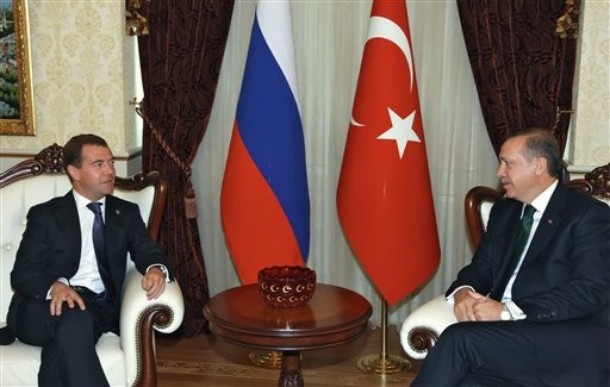
Can Europe trust Turkey when it comes to energy security any more than we can trust Ukraine?
Turkey is becoming a major energy hub, with pipelines from Russia and the Caspian basin crisscrossing the country. The two notable projects are the Blue Stream gas line, which brings Russian gas to Turkey, and the Baku-Tbilisi-Ceyhan oil line, which brings Azerbaijan and Kazakhstan’s oil to the Turkish Mediterranean coast and from there on to the world market.
New projects are underway, which are both impressive in their volume and value as well, and which can strengthen Turkey’s role as a regional energy hub. These include the Nabucco gas pipeline that will connect Europe to the Caspian, Blue Stream 2 with Russia, and the TGI (Turkey-Greece-Italy) interconnector.
In addition to the pipelines, Turkey is also thinking nuclear. Its first project in this regard is already underway, supported by Russian know-how.
The strategy is good and the set-up is attractive. But can Turkey pull it off?
One thing is for sure: last week’s meeting between Russian Prime Minister Vladimir Putin and Turkish Prime Minister Recep Erdogan, after which Putin announced a suspension of the Blue Stream 2 project, is not the way to go.
Several aspects of Putin’s announcement are curious. Behind the Blue Stream 2 project is Israel’s energy market, which according to the Russian PM has enough domestic sources to provide for its growing electricity demand. The analysis is suspicious since just weeks ago Moscow indicated it was keen to enter the Israeli gas market. And the timing is also interesting, since the decision came just days after Israel’s attack on the Turkish flotilla off the coast of Gaza.
The Turkish political establishment reacted with outrage to Israel’s attack, and Erdogan demanded a public apology from the Israelis and an independent investigation into the attacks. They have thus far refused to do either.
Did Erdogan convince his Russian counterpart to use energy as a pressure tool on Israel in exchange for Turkey’s first nuclear project going to the Russians?
The Southern energy corridor, a project designed to enhance Europe’s energy security by diversifying supply of natural gas away from Russia and Algeria, will pass through Turkey and connect to the Caspian. The principle pipeline of the Southern corridor project is the Nabucco gas line, which will cost over 10 billion euros to construct with a volume capacity of over 30 bcm. This is not an extraordinary volume from the perspective of added energy value to the European total energy mix, but it will significantly alter the gas markets in Turkey, southeast Europe, and central Europe, which today almost exclusively depend on gas imports from Russia.
However, in order for the Southern energy corridor to matter and add value to European energy security, it needs to offer Europe direct access to the producers of natural gas. In the first phase this would be Azerbaijan, maybe later Turkmenistan, and someday possibly Iran. This also means that the buyer and supplier should have a safe and secure transit way, which means transit states cannot interfere with supplies to feed their political appetites. Transit agreement and transit fees need to be negotiated in a transparent manner, and should be respected and enforced.
Nobody will win if Turkey becomes another Ukraine. In this case, Europe will look for ways to bypass Turkey in order to get to the Caspian gas, or it may bypass Caspian gas altogether in favor of renewable energy. The producers may decide to sell their gas to the east and north, rather than to the west. Turkmenistan already sells its gas to China, and it could sell more. China will buy whatever it can get its hands on. Azerbaijan can also send its gas to China, through a transCaspian line to Turkmenistan. It can sell it to Iran, Russia, or build an LNG facility in Georgia and sell the gas on the sport market.
Natural gas is an attractive energy source, and it can become a major part of Europe’s future energy mix. If Europe is to meet its 20/20/20 targets, it will have to substitute out coal, and using natural gas is the cleaner alternative. A gas option is also safer and cheaper than nuclear power.
Russia has tried to play politics with energy for years now, bullying Europe and the former Soviet Republics only to have the latter seek alternative solutions. The end result: Georgia and Azerbaijan no longer buy natural gas from Russia, and Europe is looking for alternative solutions to underbuying gas from Russia. The loser is Moscow. If Turkey wants to collect attractive transit fees, it has to leave politics on the sideline and offer a secure transit of Caspian gas to Europe.
Borut Grgic is a nonresident senior fellow at The Atlantic Council, and founder and director of the transCaspian initiative. Photo credit: AP Photo.
Image: Russia-Turkey1_0.jpg
